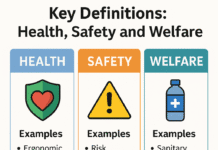
What is ISO? A Comprehensive Guide
What is ISO? : In today’s fast-paced and interconnected world, various standards and certifications play a crucial role in ensuring quality, safety, and efficiency across industries. One such widely recognized and adopted set of standards is ISO. In this article, we will dive deep into the world of ISO, exploring what it is, its importance, and how it affects businesses and consumers alike.
1. Understanding ISO
ISO stands for the International Organization for Standardization. It is a non-governmental organization that develops and publishes international standards to ensure the quality, safety, and efficiency of products, services, and systems across various industries.
2. History of ISO
The roots of ISO can be traced back to 1947 when delegates from 25 countries gathered in London to create a new international organization focused on standardization. Today, ISO has published over 23,000 international standards.
3. ISO and Quality Management
Quality management is at the core of ISO standards. ISO 9001, for instance, is the standard for quality management systems and is globally recognized. It provides a framework for organizations to enhance customer satisfaction and improve product and service quality.
4. ISO Certification Process
Obtaining ISO certification involves a systematic process. It begins with understanding the specific ISO standard relevant to your industry, followed by implementation, documentation, and a final audit by a certification body.
5. ISO Standards in Different Industries
ISO standards are not limited to a single industry. They cover a wide array of sectors, including manufacturing, healthcare, finance, and more. Each industry may have its set of ISO standards tailored to its unique needs.
6. Benefits of ISO Certification
ISO certification offers numerous benefits to organizations, including increased credibility, improved operational efficiency, enhanced customer trust, and access to global markets.
7. ISO and International Trade
ISO standards play a vital role in international trade by harmonizing quality requirements. This simplifies cross-border trade and ensures that products and services meet global quality benchmarks.
8. Common Myths about ISO
There are several misconceptions about ISO certification, such as it being too costly or complicated. We’ll debunk these myths and shed light on the real value of ISO certification.
9. ISO 9001: A Closer Look
ISO 9001 is perhaps the most well-known ISO standard. We’ll take an in-depth look at its requirements and how it benefits organizations of all sizes.
10. ISO 14001: Environmental Management
In an era of environmental consciousness, ISO 14001 focuses on environmental management systems, helping organizations minimize their environmental footprint.
11. ISO 27001: Information Security
In a digitally connected world, information security is paramount. ISO 27001 provides guidelines for protecting sensitive information.
12. ISO 45001: Occupational Health and Safety
Workplace safety is a top priority. ISO 45001 sets the standards for creating a safe and healthy work environment.
13. ISO 50001: Energy Management
With the growing concern for energy conservation, ISO 50001 helps organizations manage energy resources more efficiently.
14. ISO 22000: Food Safety
Food safety is critical in the food industry. ISO 22000 ensures that food products are safe for consumption.
15. ISO 13485: Medical Devices
ISO 13485 focuses on the quality management of medical devices, ensuring they meet regulatory requirements and are safe for patients.
Conclusion
ISO is not just an acronym but a symbol of quality, safety, and efficiency. It touches various aspects of our lives, from the products we use to the services we rely on. By adhering to ISO standards, organizations can not only improve their operations but also contribute to a safer and more reliable world.
FAQs
- What is the purpose of ISO certification?
- ISO certification ensures that products, services, and systems meet international quality standards, enhancing their credibility and reliability.
- How long does it take to get ISO certified?
- The time required for ISO certification varies depending on the complexity of the organization and the chosen ISO standard. It typically takes several months.
- Are ISO standards mandatory?
- ISO standards are voluntary, but many organizations choose to adopt them to gain a competitive edge and demonstrate their commitment to quality.
- Can small businesses benefit from ISO certification?
- Yes, ISO certification can benefit businesses of all sizes by improving their processes, customer satisfaction, and market access.
- How often is ISO certification renewed?
- ISO certification needs to be renewed periodically through regular audits to ensure that the organization continues to meet the standard’s requirements.
In conclusion, ISO is not just a set of standards; it’s a driving force behind quality and innovation. Whether you’re a business owner looking to enhance your processes or a consumer seeking trustworthy products and services, ISO plays a pivotal role in shaping our world for the better.
























